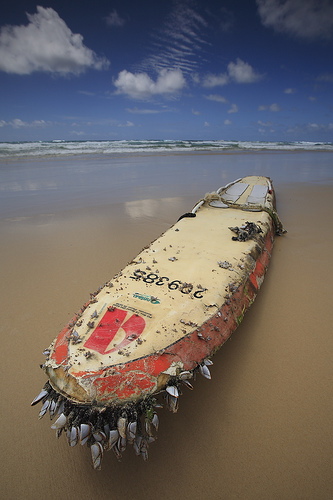Mussel "glue" and inkjet printers may make for faster healing from surgeries

The adhesive protein mussels create allow them to stick tenaciously to virtually any type of material, including rocks, glass, metals, and wood. Now, researchers at North Carolina State University found a way to use this natural mussel glue along with a variation on the inkjet printer to make medical adhesives that can potentially shorten the healing time from surgeries. The approach may help replace traditional sutures, and lead to faster recovery times and increased precision for exacting operations like eye surgery, according to the researchers.
While effective, the drawback with traditional sutures (stitches) is that they require great skill and longer operating times, and are associated with a number of surgical complications, including discomfort, infection and inflammation. Synthetic adhesives, while widely used, are seeing growing concerns over their toxicological and environmental effects. Some of the solvents, monomers, and additives used in synthetic adhesives are not biodegradable and do not break down in the body , and therefore may cause inflammation, tissue damage, or other problems.
These concerns have paved the way for the development of natural substitutes that may overcome several problems associated with conventional tissue bonding materials.
According to Dr.Roger J. Narayan, a co-author of the study and associate professor in the joint biomedical engineering department of NC State and the University of North Carolina at Chapel Hill, the piezoelectric inkjet printing of naturally-derived biological adhesives are non-toxic and biodegradable.
Additionally, the technique can be used to create customized medical adhesives, which may have a host of applications. For example, it may "significantly improve wound repair in eye surgery, wound closure and fracture fixation," according to Narayan. "This is an improved way of joining tissues because the use of the inkjet technology gives you greater control over the placement of the adhesive. This helps ensure that the tissues are joined together in just the right spot, forming a better bond that leads to improved healing and less scarring," he said. This technique may significantly improve wound repair in next generation eye repair, fracture fixation, wound closure, and drug delivery devices.
